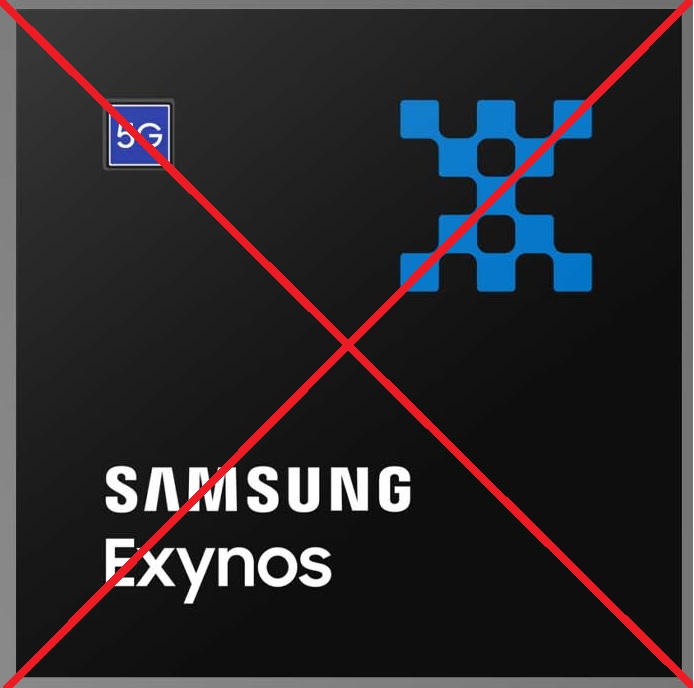
With the launch of the original Samsung Galaxy S Samsung began plaguing worldwide markets with their Exynos chipsets in the S series.
Any market outside of Canada, China, Japan, Korea and the US will get an Exynos chipset in their S series (apart from a couple of exception years) where the others will get a Qualcomm Snapdragon.
What is the reason for this? There are varying theories on this but from what I can gather (please do your own research too) it boils down to two things.
- Maximising profits. In markets where Samsung have less competition and more market saturation (read where they can get away with it) they will use their in house chip, keeping production in house maximises profits and minimises external licensing fees.
- A bargaining chip. By continuing to develop and apply the Exynos chipsets to devices Samsung keep the pressure on Qualcomm. They have a “special relationship” with Qualcomm. This agreement prevents Samsung from selling their Exynos chipsets to other manufacturers (big win!) while giving Samsung guaranteed access to Qualcomm chipset supply and in some cases even slightly tweaked versions that no-one else has access to.
Why is this a problem? After all monopolies are never a good thing. Competition is what spurs innovation, and keeps prices in check.
The problem is cost and lack of choice.
Without exception every Exynos chipset has performed worse than it’s Snapdragon counterpart (again, please do your own research to confirm this, don’t take my word). Not once has the Exynos managed to best the Snapdragon in benchmarks although some years it has come close. In day to day usage the gap widens, with Exynos chipsets being notorious for overheating, having excessive battery drain and worse modem performance.
Despite this the markets that drew the short straw and received an Exynos variant get no price concession, costing the same or even more in some cases than the Snapdragon versions. Had the user been given the choice to buy the Exynos for a slightly lower price I would be more accepting of this.
Samsung clearly know they aren’t up to par too. We thought the dark days were over when the S23 series was released. There was no Exynos version, all markets worldwide got the Snapdragon 8gen 2 chipset. Sadly it didn’t last, when the S24 series launched we were back to Exynos. Strangely though the S24 Ultra got the Snapdragon 8gen 3 regardless of market, seemingly an acknowledgement from Samsung that their Exynos chipset wasn’t worthy of the “Ultra” name.
With the launch of the S25 series we’re back to the whole world getting Snapdragon 8 Elite chipsets. While nothing much has changed from the S24 series the base model S25 and S25+ will benefit massively from this. Coupled with the supposed 7 years of updates and this becomes a fairly lucrative deal. In comparison I highly doubt that the Exynos bound S24 series will last through their 7 years of updates.
Even though I stated that Samsung are bound by Qualcomm to not sell their chipsets to other manufacturers, it has still technically happened. Google’s “Tensor” line up are developed in the Samsung foundry and are actually modified versions of the Exynos chipsets. Read a little into user reviews of these phones from the Pixel 6 upwards and you’ll see swathes of reports of overheating, poor performance and modem issues. Thankfully it is reported that Google are moving their chipset development over to the TSMC foundry (responsible for Mediatek), which have come on leaps and bounds in recent years and are now a true competitor to Qualcomm. Fingers crossed they see good results.
Unfortunately the average consumer knows nothing of this, and sales data backs that up. Despite worse performance and a higher price the S24 series sold more in Exynos markets than the S23 did. I highly doubt this will be the last we see of the infamous Exynos, and unless Samsung see a hit to sales when they try their luck they’ll carry on doing it.
If you’re reading this blog you are most likely not an average consumer. When Samsung release a phone with an Exynos variant I urge you not to buy it. Hold on to your current device and await a Snapdragon release. Big reviewers will always downplay the issue because they’re paid to do so. It’s only a few months down the line when honest opinions start to pop up and they’re always the same. If the whole world gets Exynos as the only option then we’ll need to rethink Samsung as a whole, but for now protest this with your wallet.
Leave a Reply